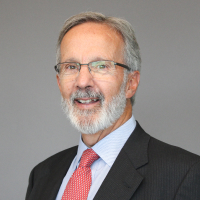Overview
Every pandemic shock leaves a legacy, how will COVID-19 impact workers’ compensation? Learn from former state executive directors and seasoned worker’s compensation makers, Todd Brown of Texas and Paul Sighinolfi from Maine, and Wesley Marshall, the Commissioner of the Virginia Workers Compensation Commission on the impact of this cataclysmic event on the future of workers’ compensation.
This article discusses topics including:
- The consensus and response from states on handling the pandemic and adapting to its impact on the industry
- The impact of the pandemic on the medical community, including how claim filings related to emotional distress might be prosecuted under state occupational disease provisions or as traditional injury claims
I was recently afforded the opportunity to host a webinar on how the regulatory community is responding to COVID-19. In-house we have been tracking how state systems have adapted. In doing so we created a State Impacts chart for staff and others outlining what each state has done. It is not intended to be a definitive appreciation for the states’ adaptation but rather gives the fundamentals.
We thought it would be valuable for the national workers’ compensation community to hear from several individuals who are well known nationally to share views on how states are coping with this cataclysmic event.
Our two panelists were Todd Brown, a Compliance and Regulatory Affairs Leader at Medata. Mr. Brown was the former Chairman of the Texas Workers’ Compensation Board. Joining him was Judge Wesley Marshall, a Commissioner and Appellate Judge in the Virginia workers’ compensation system. Both have worked in various capacities in workers’ compensation and have played roles developing policy in their states and influencing policy nationally.
You can listen to the full webinar recording, “How Have State Workers’ Compensation Systems Adapted to the Coronavirus Pandemic?” here.
The Impact of COVID-19 on the Medical Community
Medical care is being impacted in ways that were unimaginable just a few months ago. Because of the social distancing directive issued in most jurisdictions, medical appointments are being universally cancelled or modified by the providers. Rescheduling is being done more often than not electronically.
Because of these cancellations, medical costs are down by approximately 40%. It is thought initial injury visits have not been as significantly impacted as follow-up visits. Telemedicine is on the rise, while medical visits employing a telemedicine format were rare a few months ago. Because of concerns over the possible transmission of the coronavirus during an in-person visit, virtual visits are becoming the norm in certain localities. The billing process is being adapted and ICD-10 codes have been developed. It seems telemedicine is here to stay and is going to become more popular because of this crisis.
Claim filings for traditional injury claims are down, which makes sense with fewer people working. States are also experiencing an influx of filings for COVID-19 claims. Virginia for example, had a few claims early last week. This escalated to over 400 by the week’s end. It was too early for the panel to make meaningful comments on whether claims would be prosecuted under state occupational disease provisions or as traditional injury claims.
Comments were also shared about the potential for emotional and psychological injuries being claimed by those who are compelled to work and fear the risk of exposure. A work environment like that would certainly be emotionally stressful; whether it would be compensable is an open question.
There was some discussion about state attempts to carve out presumption provisions for certain classes of employees. Minnesota and Missouri are on the forefront of this movement. They have given special protection to their first responders. We also learned following the presentation that Alaska and Illinois has joined this movement.
The Impact of COVID-19 on the Workers’ Compensation Industry
Much has been written about the COVID-19 pandemic. The panelists were asked to respond to this comment: ‘every pandemic shock leaves a legacy.’ How will this one impact worker’s compensation?
This observation and question could be the subject of much speculation and will perhaps be a topic for academics to discuss in the future. The panelists thought COVID-19 will change workers’ compensation in ways we have yet to fully comprehend. It will likely lead to statutory and rule changes designed to provide coverage to those in our society who by virtue of their work experience’s harmful exposure which by right should be considered work related. This could mean a new coverage somewhere between a traditional work injury and an occupational disease. It will also lead to a change in the way claims are address procedurally. Do we need to have in-person processing or is virtual processing of claims our future?
These are troubling and exciting times for the workers’ compensation community. Troubling because our world is being turned on its head. What we know and how we do our work is experiencing a forced change. Exciting because we are adjusting in ways that we would not have thought possible a few short months ago. We will weather this cataclysmic event and will do so in ways that improve workers’ compensation for the employees who are harmed and the employers who desire to protect their most valued asset, their workforce.
New Webinar Recording: The Coronavirus Pandemic in Workers Compensation: What are the Medical Providers Thinking?
As a final note you can get access to our latest webinar recording that addresses the medical aspects of this pandemic. Our featured panelists include a forensic psychiatrist and an occupational physician. We discuss their impressions on the pandemic’s impact from the medical community’s perspective. They also address their impressions of role of the medical provider in workers’ compensation when injuries are being claimed because of a viral pandemic.


